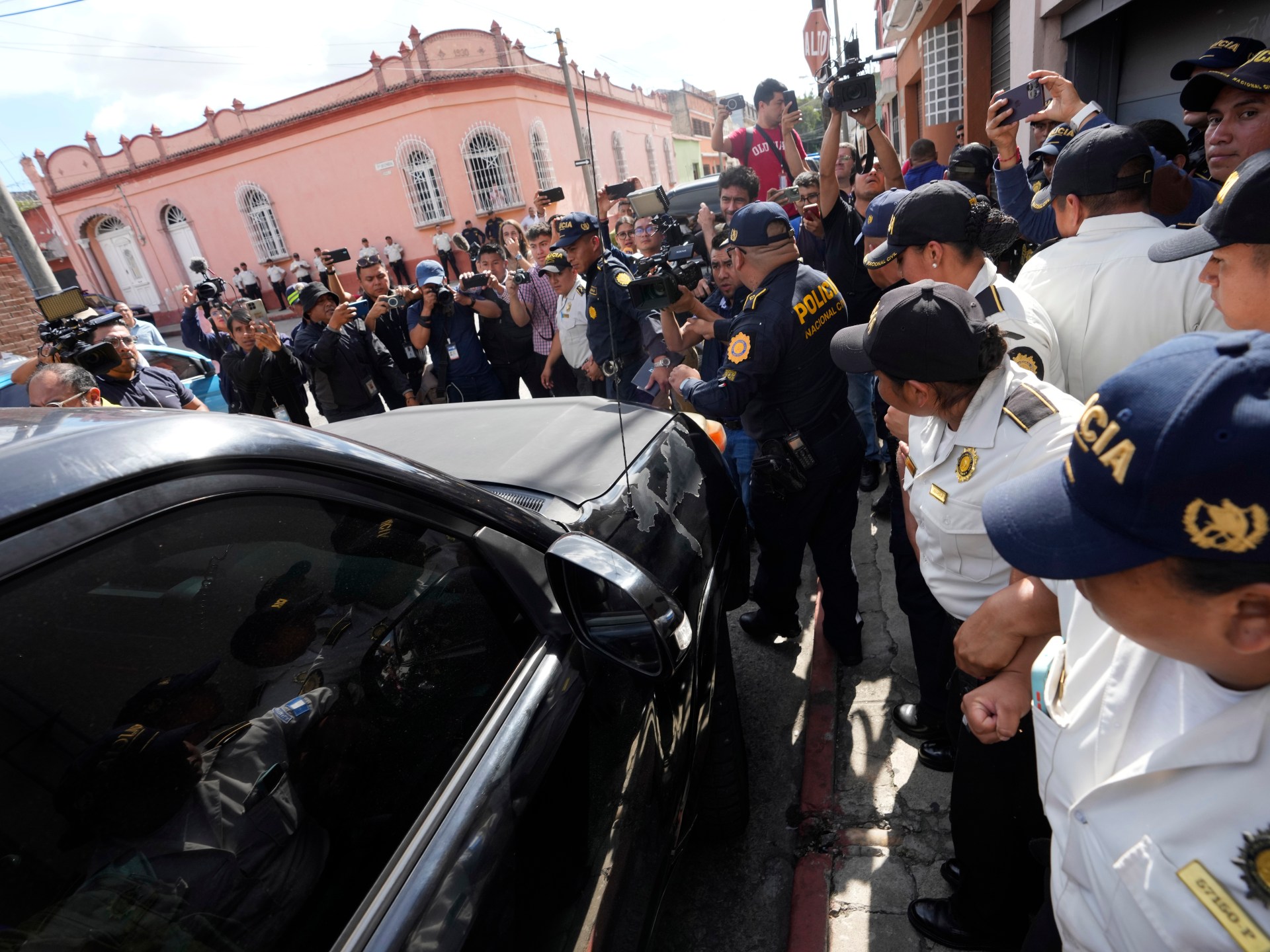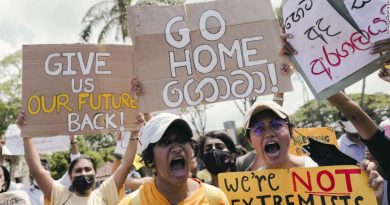Guatemala police raid office of Semilla presidential candidate
Guatemalan police have raided the offices of the progressive Movimiento Semilla or Seed Movement, a political party whose presidential candidate Bernardo Arevalo defied expectations to advance to the second round of the country’s upcoming elections.
In the wake of Friday’s raid, Arevalo accused Guatemala’s attorney general’s office of “political persecution”.
“The raid is an attempt to continue the intimidation and to try to scare us,” Arevalo told the Guatemalan newspaper La Prensa Libre. “What they are doing is illegal and spurious.”
The raid on the Seed Movement’s headquarters is the latest controversial move in a closely watched election, where observers fear democratic norms are being shattered.
Also on Friday, Guatemala’s Supreme Electoral Tribunal (TSE) — the country’s highest electoral authority — appealed to the country’s Constitutional Court for an injunction against authorities including the attorney general, in order to guarantee election integrity.
The TSE certified the results of the first round of voting, held on June 25, earlier this month, after a review of ballot tallies requested by rival parties.
But since the TSE’s certification, the attorney general has raided its offices twice, most recently on Thursday, seizing voter information.
In its request for an injunction, the TSE cited a “true, future and imminent threat” that government authorities may “violate the democratic rule of law”. The TSE also issued a statement condemning the authorities’ actions as “disproportionate, intimidating and of excessive force”.
Tensions have continued to build in the Central American nation, where critics have accused authorities of attempting to suppress democracy and shape the upcoming electoral contest through harassment and legal action against perceived rivals.
“In case you thought Guatemala’s August 20 presidential run-off was secure … it’s not,” Will Freeman, a fellow for Latin American Studies at the Council on Foreign Relations (CFR), a US-based think tank, said on Twitter. “Prosecutors are currently raiding the offices of Bernardo Arevalo’s opposition party, Semilla.”
Earlier this month, top prosecutor Rafael Curruchiche — an ally of the attorney general —successfully petitioned a court to suspend the Seed Movement, effectively barring it from organising and campaigning.
Curruchiche accused the Seed party of alleged irregularities in its registration as a party. But the suspension prompted protests and accusations of election meddling.
The Seed Movement’s Arevalo, who campaigned on an anti-corruption platform, had outperformed expectations at the polls. He emerged from a crowded field of candidates to nab one of two spots in the presidential run-off race, scheduled for August 20.
The country’s Constitutional Court ultimately granted an injunction blocking the suspension and allowing the Seed Movement to continue its campaign. Many political observers noted that the suspension was likely illegal under Article 92 of Guatemala’s Electoral and Political Parties Law.
The prosecutor Curruchiche and Attorney General María Consuelo Porras have both faced corruption allegations in the past. In 2022, the United States accused Porras of using her position “to protect her political allies and gain undue political favor”.
Fredy Orellana, the judge who ordered Thursday’s raid on the TSE, was also barred from entering the US this week for his role in the prosecution of journalists like Jose Ruben Zamora. That case was strongly criticised as an attack on democratic freedoms by press rights groups.
As Friday’s raid unfolded, Pedro Vaca Villarreal — the special rapporteur for freedom of expression at the Inter-American Commission on Human Rights — posted on Twitter that he had received “reports of intimidation” by Guatemala’s national police against journalists covering the proceedings.
“The State must refrain from obstructing the work of the press and give full guarantees to report on matters of public interest,” he wrote.
The commission itself released a statement calling on Guatemala “to ensure the principle of separation of powers” and allow the TSE to do its work. It also reiterated its concern about “interference in the electoral process”.
Earlier this week, an observer mission from the Organization of American States (OAS) concluded that political actors in Guatemala have used “the abuse of legal instruments” to disrupt the results of a “successful” election.




